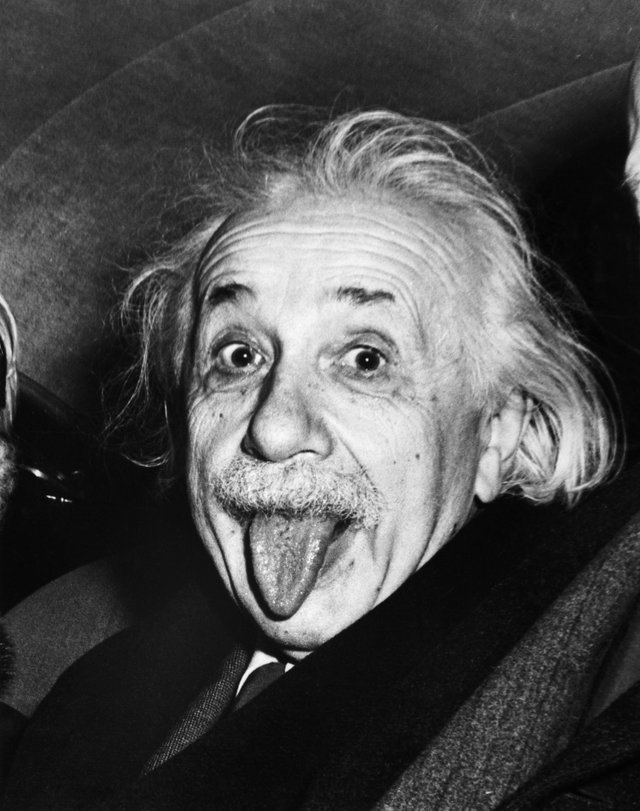Brain of Einstien
Albert Einstein's brain has been the subject of much research and speculation. The physicist's brain was removed within seven and a half hours of his death. He attracted attention because of Einstein's reputation as one of the greatest geniuses of the twentieth century and some apparent patterns or irregularities in the brain were used to support various ideas about the links between neuroanatomy. and general or mathematical intelligence. Scientific studies have suggested that some regions involved in speech and language are smaller in Albert Einstein while regions involved in digital and spatial processing are larger. Other studies have suggested a larger number of glial cells in the physicist's brain.Science: The Einstein Brain
The man was a genius, but we did not know why. Researchers say they have found the source of his remarkable abilities. Here is the explanation.
Gifted thanks to a small cubic centimeter more:
Why was Albert Einstein awesome? Forty-four years after his death, the founder of modern physics, famous among others for having found the famous equation E = mc2 continues to intrigue scientists from around the world. A team of Canadian researchers, led by Sandra F.Witelson, investigated the anatomy of Einstein's brain and claimed to have discovered the origin of this extraordinary intelligence.
of Einstein's brain and claimed to have discovered the origin of this extraordinary intelligence.
We already knew that the brain of the father of general relativity was larger than that of the average person ... But the difference did not really jump in the eyes. Sandra Witelson has finally put her finger on the extra roundness which, according to her, would justify this pure genius. The idea of a link between brain anatomy and intellectual abilities is not new. Since the beginning of the century, many researchers have tried to unravel the mystery of geniuses: they observed the gray matter of the latter, and one of them thought to solve the enigma by weighing the brains of famous people. However, he quickly disappointed when he noticed that on the scale the brain of the writer Ivan Turgenev was twice as heavy as that of Anatole France, considered a genius at his time. Today, researchers at McMaster University in Hamilton, Ontario use sophisticated methods. They obtained samples of the scientist's brain, held at Princeton University in New Jersey, United States. It was here that at the death of Einstein in 1955 when he was 76 years old the medical examiner thomas Harvey had collected his gray matter to keep it in a jar of formaldehyde, with the secret hope of discovering one day the math bump. He measured it from all angles, made dozens of snapshots and made 240 samples without ever publishing the results of his work.
The largest collection of brain samples:
Taking up the torch in 1996, Witelson's team used the service of a larger collection of brain samples that had belonged to individuals of average intelligence. three years of painstaking comparisons between this bank and Einstein's brain finally made it possible to isolate the little cubic centimeter that makes the difference. In an article entitled "The Exceptional Brain of Einstein", published June 19 in the famous British journal The Lancet, the researchers explain how they highlighted the fact that the volume of the lower part of the two parietal lobes exceeded 15% the normal.
Next step: study people whose IQ exceeds 130:
These areas play a fundamental role in the memory of language as well as in the perception of space and movement. From there to locate the gift of Albert Einstein for abstraction, there is only one step that Canadian scientists have not hesitated to cross. They will now have to prove that the superintelligence is there, by studying the brains of which the lucky owners had an intellectual daily greater than 130, the average is 100. If the Canadian scientist Sandra Witelson was right, all these Brains of gifted ones should also present the famous cubic centimeter related to intellectual abilities. Although the observation is right, the question remains unanswered. Are the gifted born with the math bump or do they develop it with a secret always perfectly kept?
A genius who did not like school:
The famous physicist was born on March 4, 1879 in Ulm, Germany. From an early age, he routed his parents. indeed, little Einstein has no memory and learns his lessons badly. However, at the age of 12, his reasoning is worthy of those of a university student. His academic achievements are, however, desperate, and his parents do not know what to do with this little boy who prefers to spend hours building châteaux of cards. Even worse at 16, the young Albert fails the admission exams of the Zurich Polytechnic Institute! He presents himself a second time and succeeds .... Einstein spent four years in physics and mathematics. Upon leaving the Institute, he finds a job as a patent inspector. Albert Einstein will teach at the Universities of Berne, Zurich, Prague, Leiden and Berlin. His students are enjoying his grimaces and his non-conformist way of teaching physics. In 1905 he published five memoirs that brought together his research on the theory of general relativity, which was finally perfected in 1916. In 1921 he won the Nobel Prize in physics, not for his research on relativity, which gave rise to many